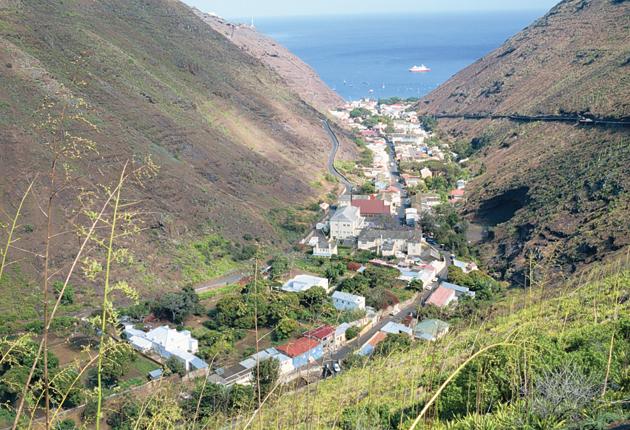An airport for St Helena (too late for Napoleon)

In 1815, the British government had a dangerous prisoner on its hands. Napoleon Bonaparte had just been defeated at Waterloo, but he had been defeated before – and exiled to the island of Elba, 12 miles off the coast of Tuscany, but had come storming back.
This second time round, Britain was not going to be caught. They sent him to the most remote place in the entire British empire – the island of St Helena, in the south Atlantic, from which there could be no escape. He died there in 1821.
Even today, St Helena is reckoned to about the most remote place inhabited by human beings – but yesterday there was a prospect that its days of isolation are over, because the UK Government has told the islanders they can have an airport. It means that while other government departments cut spending to the bone, the Department for International Development – whose budget is protected from the cuts – will be spending an estimated £300m on St Helena's airport.
The decision is a personal triumph for the billionaire Tory peer Lord Ashcroft, who is well known to have a soft spot for old colonial outposts.
In January, when he was flying his private plane from Namibia to Brazil, he took a detour to "buzz" St Helena at low altitude, to publicise their cause. The islanders came out of their homes for this rare sighting of a low-flying aircraft and Mike Olsson – who runs the island's radio station – interviewed the peer as he circled overhead.
Lord Ashcroft has also tabled questions in the House of Lords, demanding a decision on the island's future. "He is absolutely thrilled by the decision," his spokesman said yesterday. "If you were a betting man you could wager a modest bet on him being in the first plane to land on the island."
The Labour MP Meg Munn, who was the Foreign Office minister responsible for Overseas Territories in 2007-08, has been another vociferous supporter of the islanders' case. She also welcomed yesterday's decision: "It makes absolute economic sense. It would have cost us a lot more in the long run not to build the airport."
St Helena is one of the last remnants of the British Empire, ruled by a governor appointed by the Queen and receiving £20m a year in grants from Britain's overseas aid budget – more than £5,000 per head of population. It consists of less than 50 square miles of volcanic rock, 1,400 miles west of the nearest mainland port, Walvis Bay in Namibia and 1,800 miles east of the coast of Brazil. The islanders' nearest neighbours are on Ascension Island, 800 miles to the north.
The islanders have campaigned for years for an airport, because their only contact with the outside world is a ship, the RMS St Helena, which does a regular run to and from Cape Town.
But the ship is due for the scrapheap. It broke down in November 1999 – when it was on its way to take essential supplies and passengers to the island – and had to be docked in the French port of Brest. While it was being repaired, the islanders were completely cut off and left anxiously wondering if they were going to run out of food and other essentials.
The International Development department agreed in 2005 that St Helena needed an airport and by October 2008 was in the process of negotiating a contract when the banking crisis began. Gordon Brown ordered that the project be put on hold and called for the papers so he could personally go through all the figures and see if the UK was getting value for money.
The International Development Secretary Andrew Mitchell said in a statement yesterday that a new airport would give the island the chance to pay its way in the world, whereas if all it got was a new ship, it would always be dependent on UK government handouts.
Join our commenting forum
Join thought-provoking conversations, follow other Independent readers and see their replies
Comments